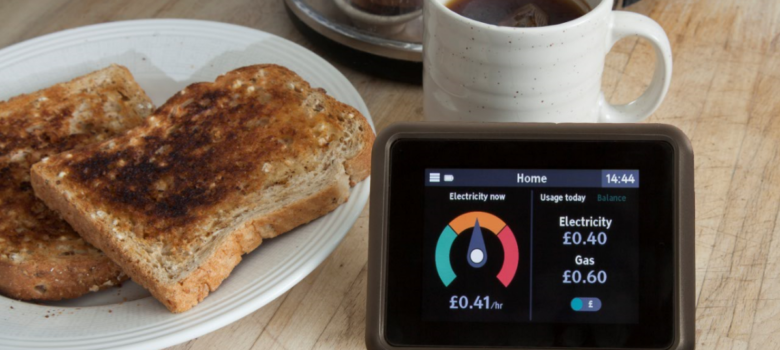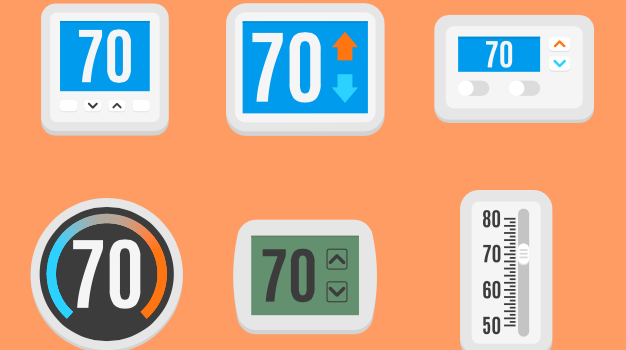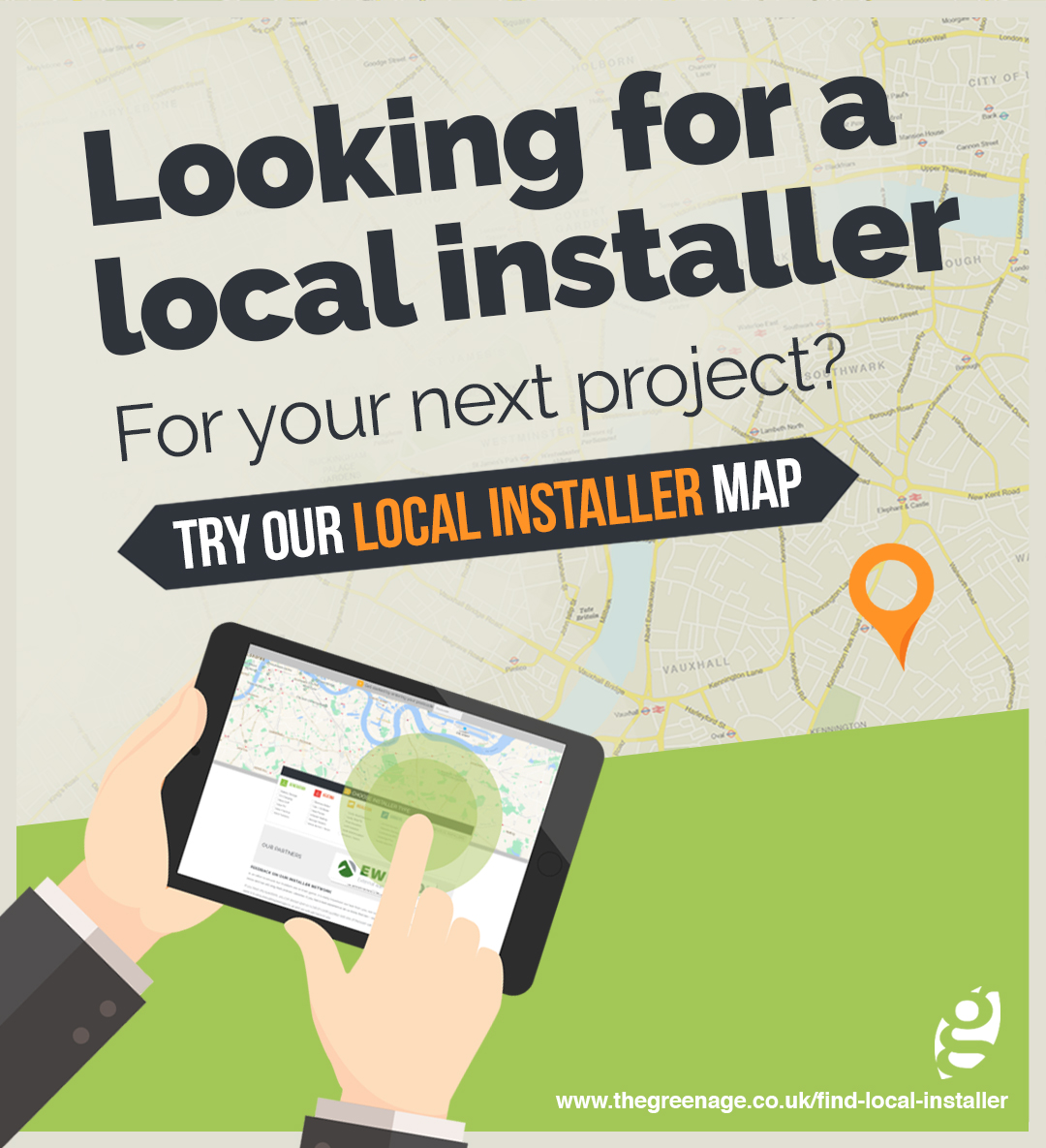
What are smart meters?
Smart meters measure your gas and electricity and automatically send readings to your energy providers. They are currently being installed free of charge across the UK – the Government wants every house to have them by 2020.
Smart meter readings are sent directly to your energy supplier via a secure national network (DNN) created specially for the purpose. This network is not reliant on wifi; instead it uses radio waves.
You will get two meters to replace your current models, plus an in-home display. This screen will show your energy consumption in the last day, week or month. It will also tell you how much you’ve spent, updated every half hour. Depending on the model, it may show other information too, such as the indoor temperature, or whether you’ve gone over-budget. At the moment, it looks like they will have to run separately to smart heating systems- with separate displays- but their compatibility could improve as models become more sophisticated.
Smart gas meters are battery-powered and give readings every 30 mins. Smart electricity meters run off the mains and gives moment-to-moment readings. The in-home display is also wired into the mains and costs less than £1 a year to run.
They will be provided and installed by your energy provider. If you have different suppliers for gas and electricity, the person installing the second meter will be responsible for ensuring it links to the first, and that both link to your in-home display. The smart gas meter will be around the same size as your current gas meter, and the electricity meter might be slightly bigger. They will be tucked away like your current ones are, however, so you probably won’t even notice they’re there!
Smart Meters: Yay or Nay? @TheGreenAge breaks down the new technology and the controversy around it! https://t.co/qBzvyEHPNJ
— TheGreenAge (@TheGreenAge) February 9, 2017
What is the point of smart meters?
Smart meters have quite a few benefits for householders. First of all, they remove the fuss of having to having to read meters or send readings yourself.
The other big benefit is that it does away with estimated bills, so you won’t be overcharged. You’re also much less likely to get a big surprise when your bills come through at the end of the month. This is because you can easily track how much energy you’re using as you go along, in real time.
Because you can better track your energy consumption, it should be easier to understand and control it. This could save you money on your bills if it encourages you to make some small behavioural changes in the way you heat your home or use your appliances.
Prepayment customers will be able to top up more easily, without the need for a key or a card. They will also be able to see how much credit they’ve got left, hopefully preventing the worry and annoyance of having your supply cut off.

The long-term advantages of these changes are not just limited to householders, because UK energy network infrastructure could be put under less strain as a result of time of use tariffs. These could allow the National Grid to better manage power supply by flattening peaks in demand. This is important considering worries about the country’s approaching energy deficit.
What are people’s reservations about smart meters?
Charlie, in the photo above, recently had a smart meter installed by British Gas. He’s extremely happy with it at the moment.
“The reason I organised for a smart reader to be installed is because my British Gas bills were very inconsistent. The smart reader allows me to track my weekly usage whilst also paying a static monthly bill which doesn’t change dates. I’m very happy with my new reader, it’s easy to use and insightful. I must admit, I’m a bit of a numbers man so analysing my usage is quite interesting, especially if it saves you money.” Charlie Rose
But some people aren’t quite so sure…
Some people are worried about the hidden costs of smart meters. Energy providers claim they are free, but the £11 billion nationwide budget has to come from somewhere, so it will be passed on to homeowners through their energy bills. However, the cost per household is low – an estimated £6 per year.
There has been a lot written about the rumoured health impacts of smart meters. The truth is, they have undergone rigorous testing and Public Health England says smart meters pose no threat. Exposure to radio waves from smart meters is well within guideline levels, and is many times lower than daily exposure from wifi and mobile phones. You can view detailed information from the Government here.
Others are worried about energy companies sharing personal data. This is no more likely than it is with a standard meter – energy companies are only allowed to share information which you agree to in your contract. The most personal information they could share would be to tell companies such as price comparison websites how much you spend on your energy – but they cannot even do this without your consent.
Fears of hacking seem groundless, considering the systems have been designed by GCHQ and other leading security experts. It won’t be easier for your supplier to cut you off remotely or possible for them to fiddle your readings in order to charge you more, unlike some people claim.
What if you decide to switch provider after having a smart meter installed? In theory, it should be possible to use your meter with any energy supplier. Ofgem has introduced guidelines stating that providers shouldn’t cause obstacles if you are switching to another provider. However, we have heard from consumers that switching providers forced their smart meters into ‘dumb’ mode (which you can read about below).
.@beisgovuk Except having switched supplier at your suggestion, my new supplier can’t read the smart meter and nor can I cos you rushed it.
— Richard Ashwell (@RichardLAshwell) February 2, 2017
These teething problems should resolve themselves as the national rollout picks up pace, as they seem to have mainly affected early models, installed pre-2016.
What if you don’t want a smart meter?
Energy companies have been instructed by the Government to take ‘all reasonable steps’ to install smart meters in every home, but the bottom line is that they can’t force you to have one!
If you decide to opt out, your supplier may say it still has to replace your old model for safety reasons – even the new ones will need to be replaced every 10 years – but they will probably install a new model in ‘dumb’ mode. This means the meter’s ‘smart’ functionality is disabled, and rather than transmitting, it is instead read once a year in the old-fashioned way.
This is just us speculating, but it might be that as the point is to standardise smart meters, energy companies may not be happy about some householders doing things differently. This could mean they whack energy prices up for people on old-fashioned tariffs in future, effectively to penalise you for making things difficult!
Our thoughts
A lot of research has gone into smart metering, and some of the concerns we hear about seem to be influenced more by conspiracy theories rather than facts. Smart meters are governed by strict security regulations and there is no evidence to suggest that they are hazardous to health.
It looks to us like smart meters will be worth our while in the long run… The lowest time of use tariff rate at the moment is 4p per hour, which is insanely cheap, so if you can make the most of this, you’re on to a winner!
If you’re worried about anything or you want more technical information, you should contact your energy supplier.
Think we missed something? Do you have a different opinion?
Comment below to get your voice heard…












Switching from British Gas to Scottish Power will result in our smart meter not working. It was installed in mid-December 2016, but presumably missed the ‘later in 2016’ introduction of the DCC system. Just a waste.
Hi Tim, I agree – this is completely ridiculous and something we have spoken to Government about. It is ludicrous that people are now unable to switch between energy suppliers with the freedom that they have previously had due to a ‘new technology’ being installed in the home. It makes the energy industry more uncompetitive especially at a time when the big six are introducing huge energy price increases.
Smart meters are a ginormous scam by government and energy companies. Of course they aren’t “free”.
Yes, energy will be cheap at 4:00am. But you will pay a fortune at 6:00pm. So most people will suffer hugely.
Hi Dave
I disagree! There’s no reason why installing a smart meter would necessarily cost people money on their bills. It’s actually likely to do the opposite. First of all, you don’t have to change your tariff if you get a smart meter, in which case your rates will be the same as they are now, but you’ll be able to better track your energy usage.
The first ‘time of use’ tariff (http://www.thegreenage.co.uk/first-time-of-use-tariff-introduced/), which was launched recently, only charges 11.99p per hour for electricity all through the day and a lot of the evening, which is cheaper than the average rate of 12.5p. The (admittedly very) high rate of 24.99p is only charged for 3 hours on weekdays mid-evening, and not at all at weekends. It’s got to be a good thing if it encourages people to slightly change their habits so the National Grid can balance demand and avoid energy shortages in future!